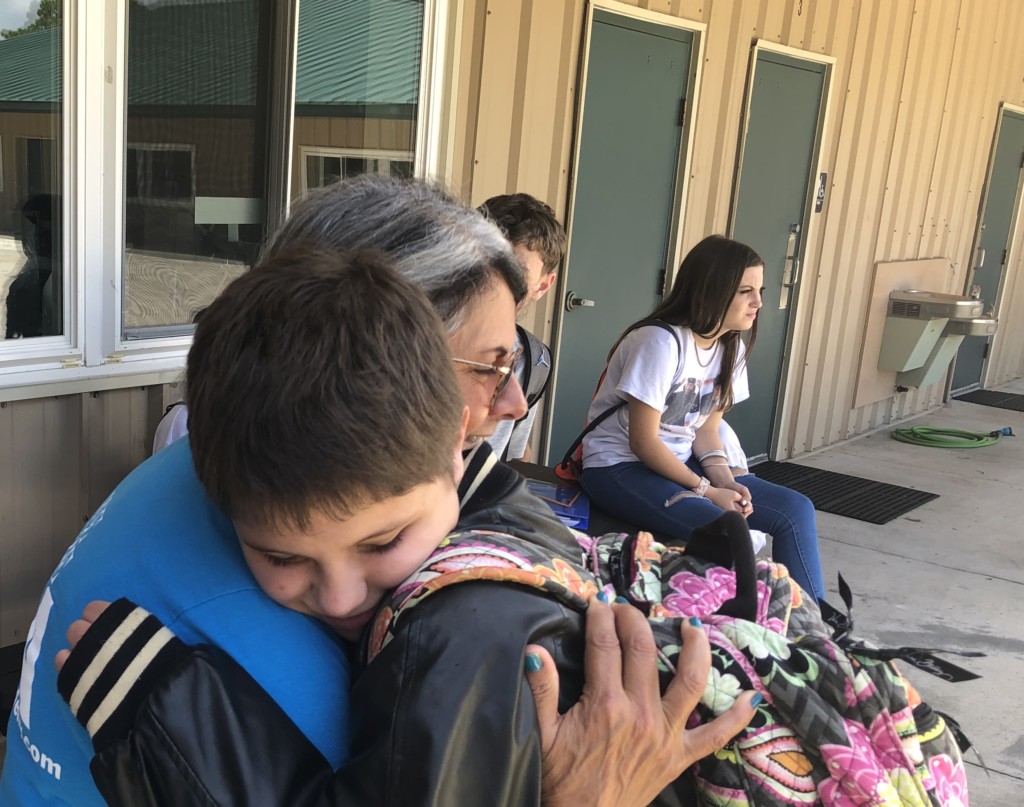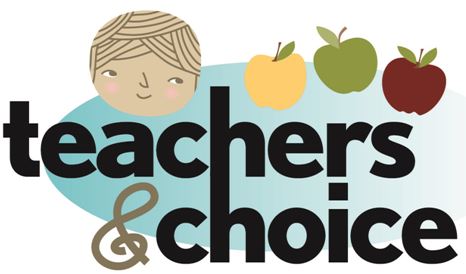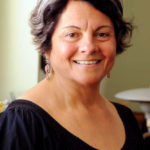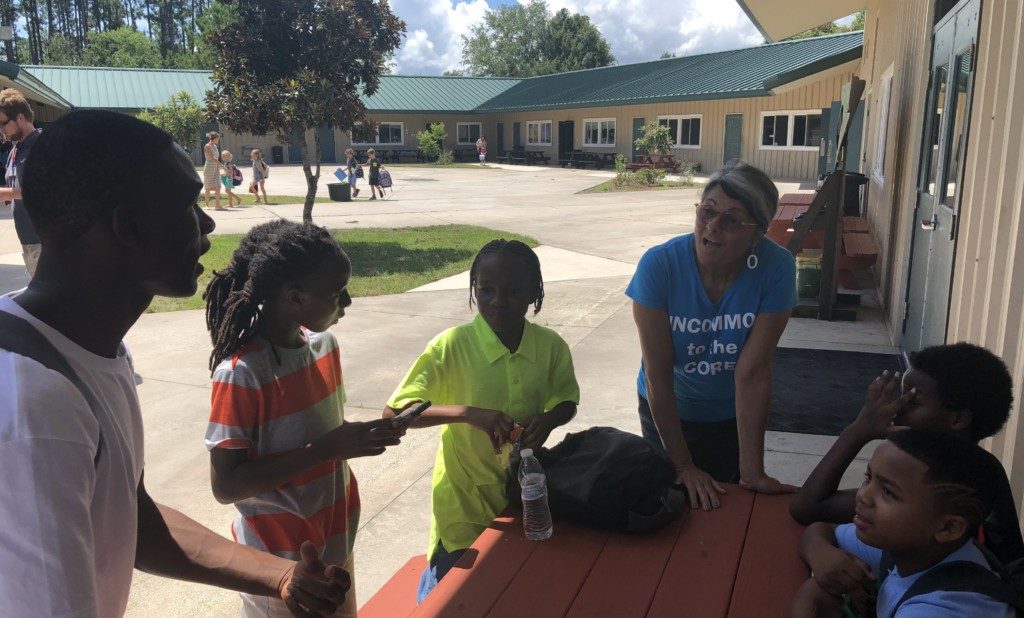
Former public school teacher Nadia Hionides has successfully melded the anti-establishment views of her youth with her passion for empowering families to make the best educational choices for their children.
JACKSONVILLE, Fla. – First day of school. Pick-up time. As 375 giddy students clotted in The Foundation Academy courtyard, Nadia Hionides, the K-12 school’s founder and principal, made the rounds. She asked returning students how their summers went. She asked the new ones if they made new friends yet.
One girl toggled from cheerful and chatty to turning her head and staring, expressionless, as if listening for something in the distance. Another girl curled her lips into a tight smile as eyes cloaked by mascara locked with Ms. Nadia’s. The girl’s mom enrolled her because bipolar disorder necessitated a learning environment that was less rigid, more patient. Hionides talked most with a shy but smiley new girl, connected via tubes to an oxygen tank. At her prior school, the girl had been placed in a class with a wide range of special needs – and, in her parents’ view, not challenged academically. That won’t happen here, Hionides said.
“Some kids take a little more work, some take a little more time,” she said. “But here they feel like they belong.”
Half-hidden in Florida’s pruned-palm sprawl, the 32-year-old Foundation Academy bloomed organically from Hionides’s convictions about teaching and learning.

Nadia Hionides: Educational choice is "a rebellion."
A former public school teacher, Hionides, 66, was repulsed by the dictates, the labeling, the testing, the tracking. She aimed to create a school for “gifted kids,” heavy on inquiry and arts and community service, that was accessible to all kids. With a big assist from Florida’s assortment of educational choice scholarships, that’s what happened.
The Foundation Academy sits on 23 acres buffered by pines. It’s intentionally and voluntarily diverse. Forty percent of its students have been diagnosed with “disabilities.” Fifty-four percent are non-white. Eighty-six percent use state educational choice scholarships, predominantly the Florida Tax Credit Scholarship for lower-income students (administered by nonprofits such as Step Up For Students, which hosts this blog) and the McKay Scholarship for students with disabilities.
Too many disadvantaged students “don’t get art, they don’t get to go on field trips, they don’t get to do all these STEM things,” Hionides said. “We give them the same enrichment. We give them the same privileges. It’s called equity and justice.”
If those sound like progressive buzzwords, they are. Fifty years ago, Hionides, a self-described “hippie from New York, man,” was chanting “power to the people,” fist up, to protest the Vietnam War. Now she’s preaching “power to the people” to expand educational options. She sees a direct link between the anti-establishment views of her youth, and the values that guide her take on public education.
“It’s a rebellion,” she said of educational choice. “You are empowering yourself to make the choice for your child. You’re not bowing down to the man. This money is now your opportunity.”
“I grew up in an era where you said, ‘We’re going to stick it to the man,’ “ Hionides said. Educational choice “is a continuation of that era.”
The Foundation Academy revels in non-conformity.
Its website says it was “founded on Christ’s values of faith, hope, and love.” It holds Bible study every morning. But there are also Tai Chi classes; a deep immersion in the arts, particularly theater; and an environmental consciousness that manifests itself in an organic garden, a solar-powered aquaponic farm and a “Three R’s” class where students re-use, repair and recycle things like old furniture. The crosses on the walls can’t be missed. Neither can the piano guts hanging as artwork, the abstract sculpture that graces the front of the school, the John Deere tractor out back.
All of it serves a purpose. “Kids generally feel like misfits,” Hionides said in a 2016 interview. “But when they come to The Foundation Academy, they see everyone’s a misfit.”
Purple hair? No prob. Nose ring? Do you. Diversity, respect, acceptance, affirmation – all are core to The Foundation Academy culture. Over the years, the school has also served dozens of openly LGBTQ students, including some who were bullied relentlessly in their prior public schools.
Success here is not defined by test scores. The most recent testing analysis of tax credit scholarship schools shows academy students falling three percentile points in reading and math relative to students nationally. Hionides said it’s because the school puts zero value on standardized tests – and makes no bones about it. (A growing body of evidence supports her skepticism.)
Learning at The Foundation Academy is assessed through presentations, projects, portfolios. Six years ago, Hionides started the Jacksonville Science Festival to spur more students in more schools to learn through inquiry projects. It began with 1,500 students. It’s grown to 4,000.

Hionides makes a point of being visible and showing students she cares. “Kids generally feel like misfits,” she said in a 2016 interview. “But when they come to The Foundation Academy, they see everyone’s a misfit.”
The Foundation Academy is inspiring teachers too. A half-dozen of its 40 staffers are former public school teachers, including Courtney Amaro, a 10-year veteran who’s been at the school seven years. She stumbled on it when she took students from her prior school to the science festival. She saw kids like the ones she was teaching – low-income, mostly minority – making poised presentations on head-spinning subjects. “The light bulb went on,” Amaro said.
Two months later, she joined the rebellion.
The rebel leader won’t fit into anybody’s box either. Hionides is a Democrat. She voted for Bernie in 2016. But she often votes Republican in general elections because she can’t stand how Democratic leaders have demagogued educational choice.
Hionides’s parents immigrated from Egypt to New York when she was seven. (She’s of Greek, Lebanese and Cypriot descent.) Her father got a job at his brother’s fish meal business. She and her siblings attended public schools. She did well, she said, except on standardized tests. When she got accepted into college despite less-than-stellar test scores, “I kissed the floor.” She went on to earn a master’s in education from the University of Pennsylvania.
She taught in an inner-city elementary school. In a state-supported boarding school for students out of chances. In a center for adults with mental health issues. In all, she emphasized project-based learning. Her students loved it. Her administrators didn’t. “It wasn’t black and white, it wasn’t kids sitting in a row, it wasn’t teachers standing up in front of the class,” she said.
Hionides and her husband moved to Jacksonville in 1982. She started The Foundation Academy six years later. In the office of her family’s motel, she taught her daughter, her daughter’s friend and the sister of her daughter’s violin teacher. The latter was a “hellion,” bright but prone to bad decisions … like doing donuts on an ex-boyfriend’s lawn. The violin teacher “said please, please, please, can you help my sister?” Hionides said. “I said, ‘Why not’?”
The Foundation Academy grew from there.
In Florida’s rich environment for educational choice, Hionides said, there’s nothing to stop other educators from doing and growing their own thing too. Teachers who feel crushed in their current schools should start their own, she said.
And stick it to the man.
To hear more from Hionides about educators starting their own schools, click on the audio file below.